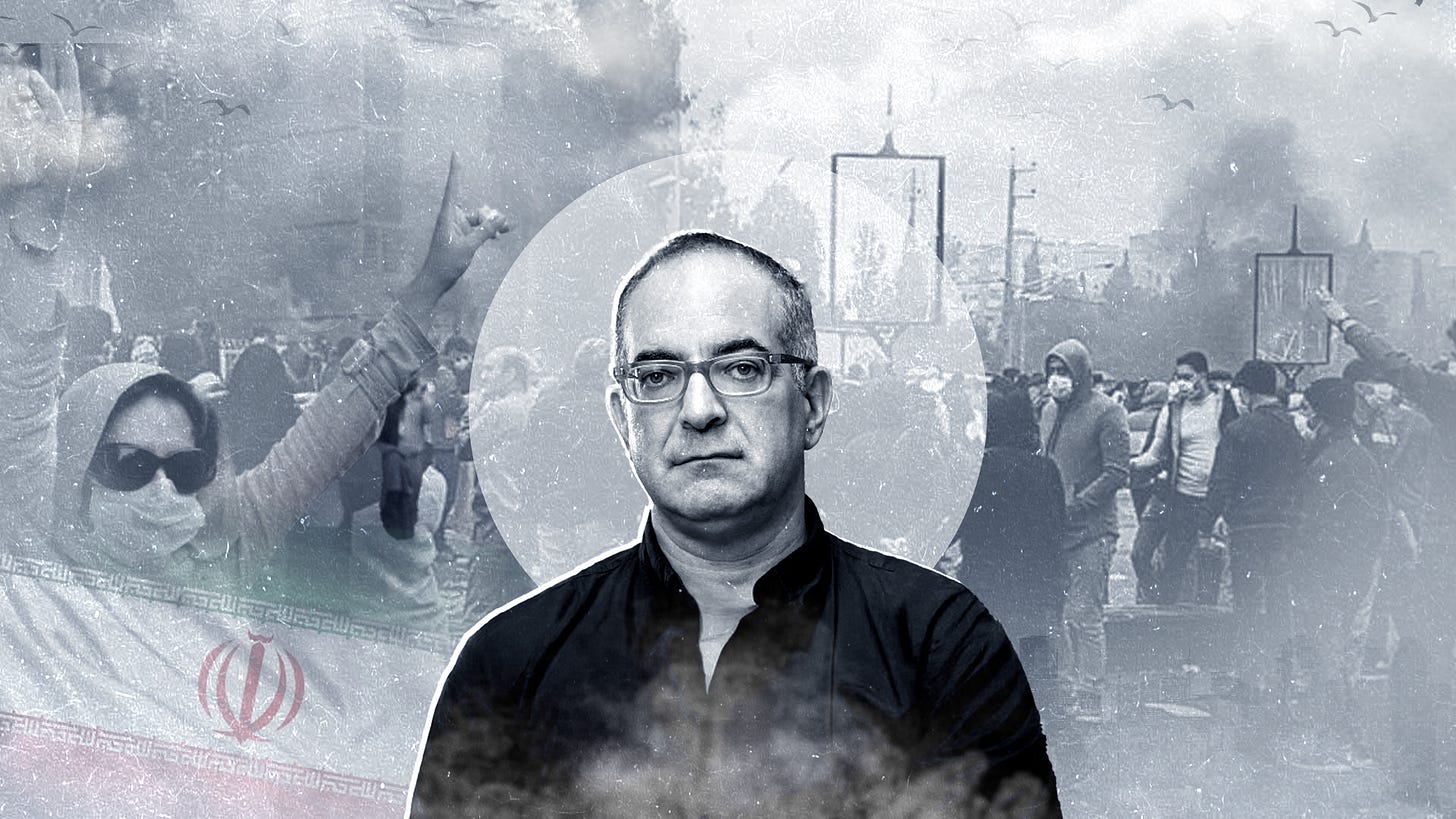On a wall in Tehran, someone spray-painted a message: “Thank you, Israel. Hit the regime hard—and leave the rest to us.”
Tom Gross, a veteran Middle East journalist and commentator, said he saw the message shared on Iranian opposition social media. For him, it captured the growing frustration among Iranians toward their rulers—and suggested that Israel's actions may have unexpected support from within the country it targeted.
As Gross explains, the strikes could speed up the fall of a deeply unpopular regime. While the goal was to set back Iran’s nuclear program, the wider result may be a political shift in the region—and even a chance for new peace deals between Israel and its long-time adversaries.
“For the history books”
The Israeli campaign is already being compared to the surprise airstrikes of the 1967 Six-Day War "when Israel crippled three Arab air forces in a matter of hours."
Roughly 200 Israeli planes hit 100 targets in Iran- in the first day of the campaign. “An incredible intelligence and logistical achievement,” said Gross. Natanz, one of Iran’s key enrichment sites, was partially destroyed. Others—like Fordow, buried under a mountain—were spared for now. Israeli strikes also killed top figures in Iran’s military and nuclear leadership. This one is “for the history books,” Gross said.
The urgency was clear. New intelligence suggested Iran was only “days, or at most two or three weeks,” away from having enough enriched uranium for up to 15 nuclear bombs. “Israel could not wait any longer,” Gross said.
Partial Success, Major Impact
Israel may not need to destroy the entire nuclear program. Even a partial hit could set it back years—or force the regime to abandon its plans. If Iran tries again, Israel will strike again, Gross said.
He compared the logic to past Israeli strikes.
In 1981, Israel bombed Saddam Hussein’s Osirak reactor. The Iraqi program wasn’t entirely destroyed. But, Saddam never rebuilt it. “It was sufficiently damaged,” Gross said. “Plus, the deterrence was there.”
In 2007, Israel struck Bashar al-Assad’s secret nuclear facility in Syria. Assad didn’t try again. The program was dead in the water.
These weren’t just technical missions. They were political blows. They removed strategic capabilities—and helped shake the foundations of brutal regimes. “The Iranian program is more widespread and more entrenched,” Gross said. “But the idea is similar.”
And now, the pressure may come from inside.
“The Iranian regime is already greatly weakened by a series of counter-revolutionary protests,” Gross said. From the 2009 Green Movement to the “Women, Life, Freedom” uprising, Iran has been boiling. The graffiti in Tehran was no accident. “Few in Israel, or in the Arab world, or even in Iran, would be unhappy if the regime were to collapse,” Gross said.
A Deal?
Gross believes a diplomatic off-ramp still exists. But only under strict terms.
“The only deal that Israel would regard as satisfactory is the kind of deal that Colonel Gaddafi did in Libya,” he said. That means complete dismantlement. And removal of all enriched uranium from Iranian soil. Russia has been floated as a possible destination.
Without that, no agreement will hold.
Gross warned against half-measures. “Any other kind of games by the regime—where it’s just buying time while continuing to push ahead—won’t be acceptable to Israel.”
He dismissed some of the media reports of tension between Prime Minister Benjamin Netanyahu and U.S. President Donald Trump. “Some of what we hear is media speculation by journalists who don’t like the governments of Trump or Netanyahu,” he said.
In practice, both countries are aligned. “Neither country wants Iran to go nuclear,” Gross said.
Quiet Support from the Arab World
In public, Arab states like Saudi Arabia condemned the strikes. But Gross sees this as posturing. “I read that more as a kind of message to Iran: please don’t hit us, we’re nothing to do with this.”
In private, he believes Gulf leaders are relieved. “Very few people... will be unhappy at Israel hitting the Iranian regime.”
Even in Gaza, some residents blame Tehran for backing Hamas into a war they could never win. “They see Hamas as having launched an unnecessary war on Israel, knowing that Palestinian civilians would bear the brunt,” he said.
In Lebanon, Hezbollah is watching. But its own arsenal has been drained. Iranian arms shipments are less effective. Israeli air defenses are shooting down what does get through.
In Yemen, the Houthis continue to fire. But even those attacks are less damaging than expected. “Israel has developed world-class missile defense which shoots down these Houthi missiles,” Gross said. “They’re not as effective a deterrent as they were.”
Across the region, Iran’s axis is under pressure. From Baghdad to Beirut, its influence is shrinking.
From Bombing to Diplomacy?
Gross believes the region could now see a political opening.
Once Hamas gives up power or is defeated, he said, “regional initiatives to rebuild Gaza” can begin. Israel has offered exile to senior Hamas leaders—if they disarm and step down.
He sees more than just a ceasefire.
With Iran’s power fading, countries like Saudi Arabia, and possibly even Syria and Lebanon, could strike peace deals with Israel. “We’re on the verge of seeing similar deals,” Gross said.
He mentions the Abraham Accords. Israel already has agreements with the UAE, Bahrain, and Morocco. Sudan has followed. “We could see Syria and Lebanon join, now that the Assad regime is out of power,” he said.
Gross also links regime change in Iran to a wider ideological reset.
“If the Iranian regime goes, radical Shiism will be greatly weakened,” he said. “And therefore, also radical Sunniism—because part of radical Sunniism is a mirror reaction to the 1979 radical Shiism.”
That, he argues, could open the way to a more stable Middle East.
Israel’s Moment of Unity
Inside Israel, politics are often bitter. But this issue is uniting the country.
“Pretty much everyone is backing Netanyahu on the Iran issue,” Gross said. That includes Arab-Israeli citizens—who make up 20% of the population. Many have also suffered from Hezbollah rockets. “If there’s anything that unites Israelis, it’s this.”
What Comes Next?
Turkey remains a regional wildcard. It supports Hamas. Turkish troops are in northern Syria. Ankara has its own ambitions.
Gross said Israel is watching. But, not focused on it for now. “Right now, Israel has more important matters on its plate.”
Iran may still have options. But not many.
“If I were the Iranian regime, I would cut my losses,” Gross said. “I would make a nuclear deal right now with the United States and sit quietly.”
That may not happen.
But Iran’s public is already sending signals. In recent protests, the chants were clear: “Not Gaza, not Lebanon, we are for the people of Iran.” They are tired of foreign wars. They want investment at home.
The Bigger Picture
Gross closed with a historical comparison.
“In World War II, Germany and Japan committed terrible crimes. No one could have imagined 80 years later that they would have solid peace with their neighbors,” he said.
“But that’s because those regimes were defeated.”
For him, the logic still applies.
“Sometimes you need to take military action to have a better outcome afterwards.”











